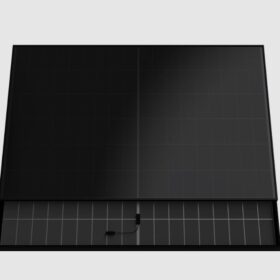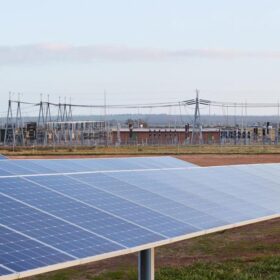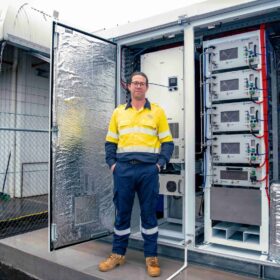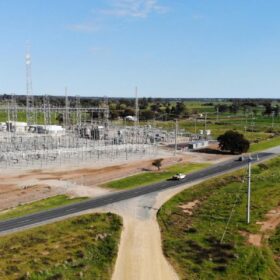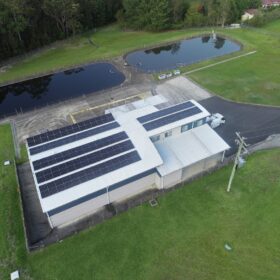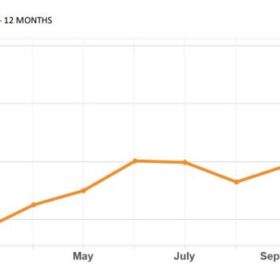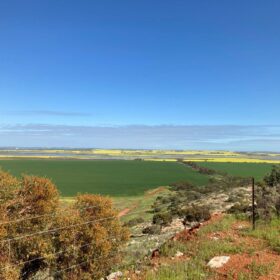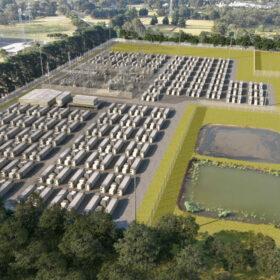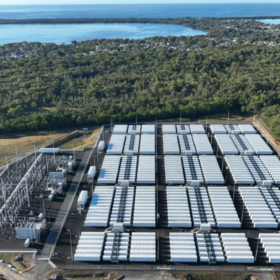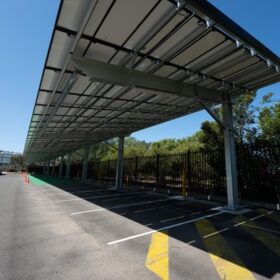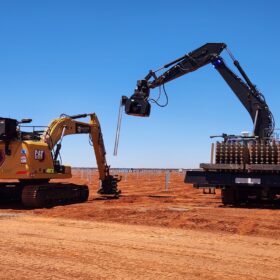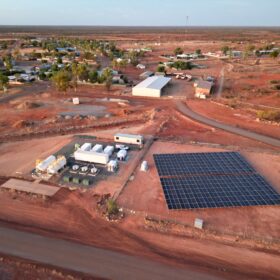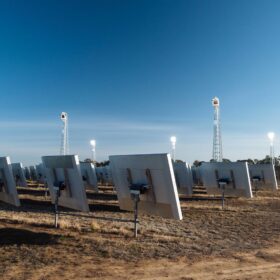AEG launches 23.3%-efficient ABC solar panel with 40-year warranty
AEG is currently offering three versions of its new ABC solar panels for rooftop applications, with power outputs of 445 W to 455 W and efficiency ratings ranging from 22.8% to 23.3%. They feature half-cut ABC cells with n-type technology.
Atmos, Nomad unveil 400 MWh battery to start 1 GW renewables rollout
Australian clean energy developers Atmos Renewables and Nomad Energy have unveiled plans for a 100 MW / 400 MWh battery energy storage project that marks the start of a collaboration that is expected to deliver more than 1 GW of renewable energy projects in Western Australia by 2030.
Pacific delivers first hydrogen stand-alone power system for NT
Renewables company Pacific Energy has deployed a first-of-a-kind containerised hydrogen electrolyser and fuel cell as part of a technology development project that is exploring the feasibility of using hydrogen as a clean energy source and storage solution for the Northern Territory’s grids.
Ace Power lands connection agreements for battery pair
Renewables developer Ace Power has secured its first grid connection agreements with the market operator for two battery energy storage projects in Australia, in what it says is a major milestone for the company.
NSW council turns to solar to power water and sewer sites
The MidCoast Council in the New South Wales Hunter region has made the shift to solar to help power its water and sewer infrastructure as part of a broader commitment to powering all council operations with 100% renewable energy by 2040.
Rystad tips Australian projects to help propel global green hydrogen growth
Rystad Energy has countered the International Energy Agency’s recent “reality check” for the green hydrogen sector, predicting the momentum behind renewable-based hydrogen will gather pace in 2024 as global renewable energy capacity continues to expand rapidly.
Weekend read: Cracking cell defect detection
After years of improving quality standards, solar cell cracking appears to be on the rise again, perhaps due to new manufacturers entering the sector. Clean Energy Associates’ (CEA) senior engineering manager Claire Kearns-McCoy considers ways to stop the rot.
Consumers say bigger is better for rooftop solar but on a budget
Solar panel and system prices are on the decline but figures provided by energy industry analyst SunWiz show that an increasing number of Australian households are opting to forgo savings in search of increased generation capacity.
Pilot Energy lodges plans for 375 MW solar farm in WA’s mid-west
Oil and gas producer Pilot Energy has filed plans to build a 375 MWdc solar farm in Western Australia’s mid-west as part of the company’s longer-term strategy to leverage its existing assets into the production of clean energy.
New joint venture targets 2 GW solar and storage build-out
Hong Kong-based private equity firm Gaw Capital Partners has teamed with Asian energy storage business BW ESS in a renewable energy venture that intends to develop more than 2 GW of utility-scale solar and battery projects in Australia.
